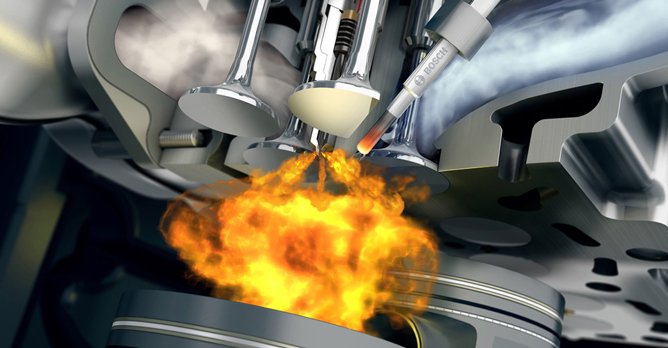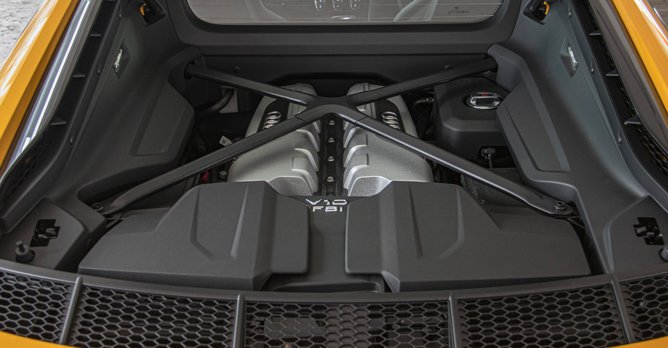Should you pump higher RON petrol for better performance? Not so fast...
21 Apr 2023|21,699 views
When it comes to petrol, does a higher RON (research octane number) or octane rating mean the fuel is better? It's easy to assume this is true, as subconsciously, we tend to think that higher numbers reflect a product's superiority, especially if it costs more per litre compared to the lower RON fuels.
However, the truth is that the type of fuel that every car needs is subjective - it just depends on what the manufacturer recommends for a particular model. Here's why.
Octane defined
A fuel's octane rating or RON is a measure of how combustible it is. A fuel with a lower octane number such as 92 or 95 is more combustible than RON 98 or 98 octane petrol.
Oil companies manufacture different grades of fuel to suit different types of cars. Before we continue, let's recall the four stages of the combustion cycle.
1. Intake: Outside air is drawn into the cylinders as the pistons move downwards.
2. Compression: The piston moves up to compress the air.
3. Combustion: As the piston almost reaches the top of the cylinder, fuel is injected, and the spark plug ignites the fuel-air mixture. The 'explosion' then drives the piston back down.
4. Exhaust: The spent gases leave the cylinders via the exhaust valves.

The answer is with stages #2 and #3 of the combustion cycle. High-performance engines that are tuned to produce lots of power typically have high compression ratios, which sees the fuel-air mixture subject to higher pressures before it is ignited.
However, when fuel is 'squeezed' or put under a lot of pressure, the temperature in the cylinder, which is already hot to begin with, rises further and this could result in it combusting before the spark plug creates a spark to ignite the mixture.
Premature combustion is called 'knocking' and it is bad because ignition is not in sync with the combustion cycle, and over time, this will damage the engine.
Can powerful cars use lower octane fuels?

On the other hand, what happens if you fill a regular runabout with high-octane fuel? Will it result in the engine making more power?
No. Contrary to what ads might imply or make you think, filling a normal car with the 'good stuff' won't make it produce more power or accelerate faster. Unless of course, the owner's manual recommends 98 RON in the first place.

Again, such results depend on whether the car's engine is tuned to use high octane petrol in the first place. Also, fuel economy figures are highly dependent on several factors, chief among them being driving style, traffic conditions, and whether the engine is properly maintained.
A poorly maintained engine with plenty of carbon build-up will have an inconsistent fuel-air ratio and poor fuel economy. In worse cases, the build-up will artificially increase the compression ratio, leading to knocking even when using recommended 92 RON or 95 RON fuel.
In such cases, this is likely to be the reason why 98 RON works better than lower octane petrol.
What's the optimal fuel grade then?

Most cars today will run fine on 95 octane fuel. If your manual recommends 92 octane petrol, you can safely fill up with that.
Filling your car with 98 RON won't harm it either, even if it's not the recommended grade. But it won't deliver any benefits either. You'll only spend more than necessary and put even more money into the coffers of the oil giants, which are already making record profits.
Think about that before your next fill-up.
These related stories may interest you
Mythbusted: Is a quality tank of fuel all you need to get rid of carbon build-up?
Many drivers have heard of these fuel-saving tips. But do they really work?
Mythbusted: Does a faster car always consume more fuel?
When it comes to petrol, does a higher RON (research octane number) or octane rating mean the fuel is better? It's easy to assume this is true, as subconsciously, we tend to think that higher numbers reflect a product's superiority, especially if it costs more per litre compared to the lower RON fuels.
However, the truth is that the type of fuel that every car needs is subjective - it just depends on what the manufacturer recommends for a particular model. Here's why.
Octane defined
A fuel's octane rating or RON is a measure of how combustible it is. A fuel with a lower octane number such as 92 or 95 is more combustible than RON 98 or 98 octane petrol.
Oil companies manufacture different grades of fuel to suit different types of cars. Before we continue, let's recall the four stages of the combustion cycle.
1. Intake: Outside air is drawn into the cylinders as the pistons move downwards.
2. Compression: The piston moves up to compress the air.
3. Combustion: As the piston almost reaches the top of the cylinder, fuel is injected, and the spark plug ignites the fuel-air mixture. The 'explosion' then drives the piston back down.
4. Exhaust: The spent gases leave the cylinders via the exhaust valves.

The answer is with stages #2 and #3 of the combustion cycle. High-performance engines that are tuned to produce lots of power typically have high compression ratios, which sees the fuel-air mixture subject to higher pressures before it is ignited.
However, when fuel is 'squeezed' or put under a lot of pressure, the temperature in the cylinder, which is already hot to begin with, rises further and this could result in it combusting before the spark plug creates a spark to ignite the mixture.
Premature combustion is called 'knocking' and it is bad because ignition is not in sync with the combustion cycle, and over time, this will damage the engine.
Can powerful cars use lower octane fuels?

On the other hand, what happens if you fill a regular runabout with high-octane fuel? Will it result in the engine making more power?
No. Contrary to what ads might imply or make you think, filling a normal car with the 'good stuff' won't make it produce more power or accelerate faster. Unless of course, the owner's manual recommends 98 RON in the first place.

Again, such results depend on whether the car's engine is tuned to use high octane petrol in the first place. Also, fuel economy figures are highly dependent on several factors, chief among them being driving style, traffic conditions, and whether the engine is properly maintained.
A poorly maintained engine with plenty of carbon build-up will have an inconsistent fuel-air ratio and poor fuel economy. In worse cases, the build-up will artificially increase the compression ratio, leading to knocking even when using recommended 92 RON or 95 RON fuel.
In such cases, this is likely to be the reason why 98 RON works better than lower octane petrol.
What's the optimal fuel grade then?

Most cars today will run fine on 95 octane fuel. If your manual recommends 92 octane petrol, you can safely fill up with that.
Filling your car with 98 RON won't harm it either, even if it's not the recommended grade. But it won't deliver any benefits either. You'll only spend more than necessary and put even more money into the coffers of the oil giants, which are already making record profits.
Think about that before your next fill-up.
These related stories may interest you
Mythbusted: Is a quality tank of fuel all you need to get rid of carbon build-up?
Many drivers have heard of these fuel-saving tips. But do they really work?
Mythbusted: Does a faster car always consume more fuel?


















